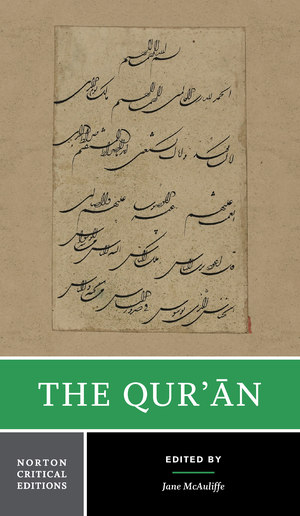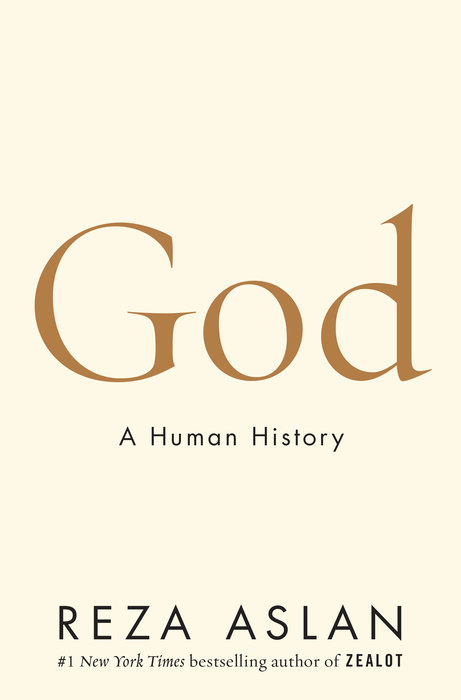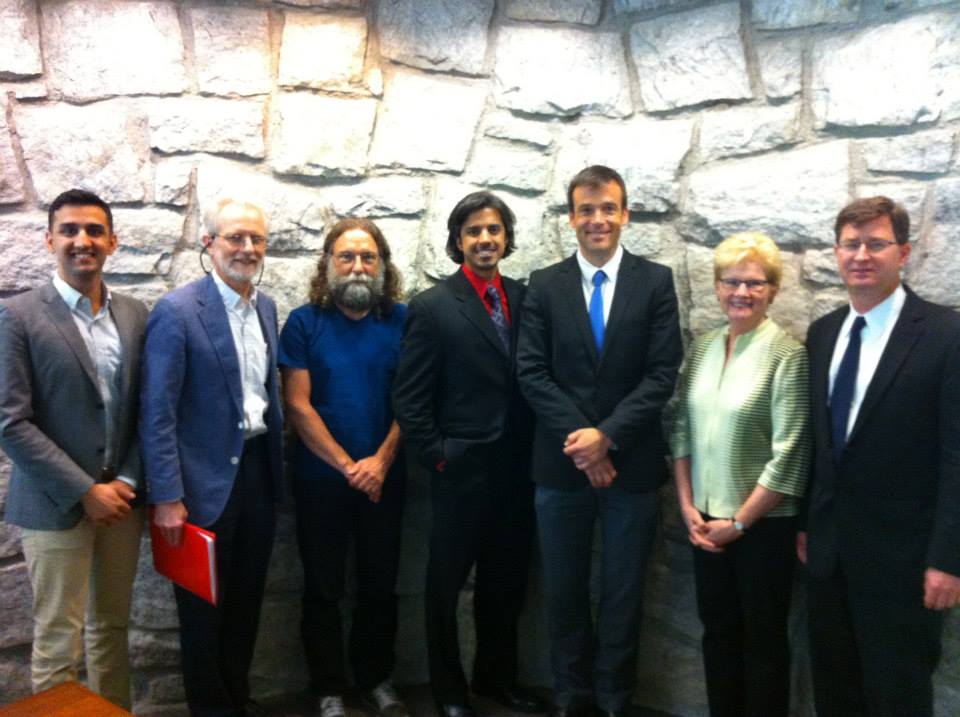Introducing our Inaugural Lifetime Members
Dear friends across the globe,
Today is another proud and historic day for the International Qur’an Studies Association (IQSA). It is with great honor that I welcome IQSA’s inaugural Lifetime Members. They are: Professor Jane Dammen McAuliffe, Director of National and International Outreach, Library of Congress, and President Emeritus, Bryn Mawr College; as well as Professor Reza Aslan, University of California in Riverside, and contributor at CNN, HBO, ABC and other media outlets. Among her many impressive achievements Professor McAuliffe is the editor of the monumental research reference work known to every student and scholar of the Qur’an today, namely the Encyclopedia of the Qur’an (2001-). Likewise, Professor Aslan is known across the world for his television appearances and best-selling books, including No God but God (2005) and Zealot (2013).
Professors McAuliffe and Aslan have already contributed to IQSA’s governance and membership, but they wished to renew their commitment on a permanent basis. And for their generosity and foresight I share with them my deepest gratitude. The caliber of their leadership directly empowers IQSA’s mission and vision, not least because they represent high quality scholarship and a commitment to building bridges across the globe. Their lifetime commitment to IQSA reinforces–ensures even–IQSA’s mandate as the only independent, member controlled, learned society dedicated to critical, cutting edge scholarship on the Qur’an. By becoming Lifetime Members of IQSA Professors McAuliffe and Aslan also send a powerful message to the public, “we support the Humanities and Higher Education.”
As renowned scholars, IQSA’s inaugural Lifetime Members each produced an exciting new book in 2017. These are:
Jane Dammen McAuliffe, The Qur’an (W.W. Norton, 2017)
This Norton Critical Edition is based on a thoroughly revised and annotated version of the well-regarded Pickthall translation of the Qur’an. Jane McAuliffe introduces the Qur’an as a living scripture, preparing readers for an informed encounter with the text. Topics include the scholarly traditions of the study of qur’anic origins; the centuries of commentary, analysis, and intellectual dissemination that have created a library of qur’anic literature; the history of translations, particularly those in English; and the many ways the Qur’an informs Muslim life and material culture.
This Norton Critical Edition also includes:
• Seven illustrations.
• Fifty judiciously selected texts representing the full spectrum of Islamic religious thought that demonstrate the Qur’an’s intellectual impact while those from related Near Eastern literatures, including biblical and extra-biblical sources, elucidate the comparative contexts of qur’anic themes and narratives. A concluding section presents the Qur’an as an American book, with a long history and significant influence in the United States.
•A Selected Bibliography.
Reza Aslan, God: A Human History (Penguin Random House, 2017)
NEW YORK TIMES BESTSELLER • The bestselling author of Zealot and host of Believer explores humanity’s quest to make sense of the divine in this concise and fascinating history of our understanding of God.
In Zealot, Reza Aslan replaced the staid, well-worn portrayal of Jesus of Nazareth with a startling new image of the man in all his contradictions. In his new book, Aslan takes on a subject even more immense: God, writ large.
In layered prose and with thoughtful, accessible scholarship, Aslan narrates the history of religion as a remarkably cohesive attempt to understand the divine by giving it human traits and emotions. According to Aslan, this innate desire to humanize God is hardwired in our brains, making it a central feature of nearly every religious tradition. As Aslan writes, “Whether we are aware of it or not, and regardless of whether we’re believers or not, what the vast majority of us think about when we think about God is a divine version of ourselves.”
But this projection is not without consequences. We bestow upon God not just all that is good in human nature—our compassion, our thirst for justice—but all that is bad in it: our greed, our bigotry, our penchant for violence. All these qualities inform our religions, cultures, and governments.
More than just a history of our understanding of God, this book is an attempt to get to the root of this humanizing impulse in order to develop a more universal spirituality. Whether you believe in one God, many gods, or no god at all, God: A Human History will challenge the way you think about the divine and its role in our everyday lives.
As a reward for their investment, lifetime members enjoy benefits in perpetuity. To accommodate the different levels of our members, IQSA offers five membership tiers starting 2018. We encourage all scholars and students in the field to consider renewing their membership or to become IQSA MEMBERS NOW.
On behalf of the Board of Directors and Standing Committees, I offer a warm welcome to Professors McAuliffe, Aslan and all incoming 2018 IQSA members.
Sincerely,
Emran El-Badawi, Executive Director
© International Qur’anic Studies Association, 2017. All rights reserved.

 This Norton Critical Edition is based on a thoroughly revised and annotated version of the well-regarded Pickthall translation of the Qur’an. Jane McAuliffe introduces the Qur’an as a living scripture, preparing readers for an informed encounter with the text. Topics include the scholarly traditions of the study of qur’anic origins; the centuries of commentary, analysis, and intellectual dissemination that have created a library of qur’anic literature; the history of translations, particularly those in English; and the many ways the Qur’an informs Muslim life and material culture.
This Norton Critical Edition is based on a thoroughly revised and annotated version of the well-regarded Pickthall translation of the Qur’an. Jane McAuliffe introduces the Qur’an as a living scripture, preparing readers for an informed encounter with the text. Topics include the scholarly traditions of the study of qur’anic origins; the centuries of commentary, analysis, and intellectual dissemination that have created a library of qur’anic literature; the history of translations, particularly those in English; and the many ways the Qur’an informs Muslim life and material culture.

